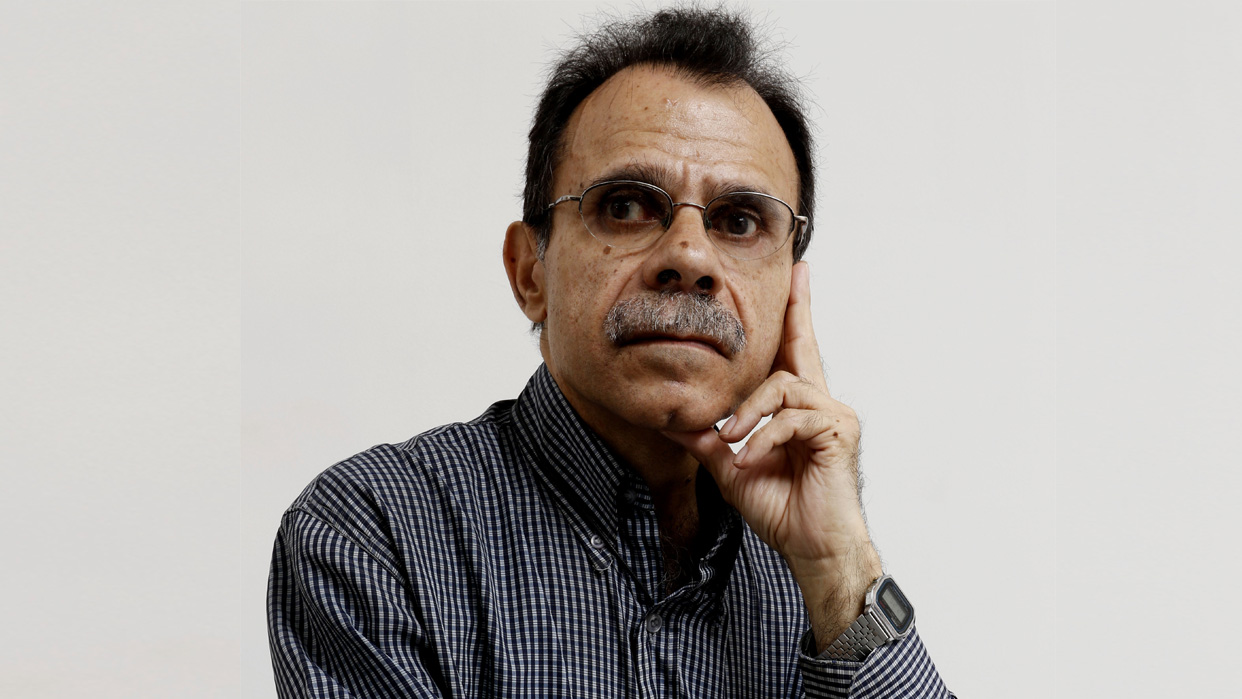I write this article not only as a contribution with the aim of contributing to the study of the development of political science in Venezuela and especially in the Central University of Venezuela (UCV), but we also delve into the next new promotion grade to which I belonged within the second batch of November 1983, which is about to complete 41 years of Graduation.
It should also be noted that this article relies on the intellectual support of Juan Carlos Rey’s published works Policy No. 50, On the early years of the Institute of Political Studies, the work of Graciela Soriano de García Pelayo, on Politea published in the above-mentioned issue and the work of Ricardo Cumpelas, on the career and legacy of Manuel García Pelayo published in an edited text in 2014 “Spanish Humanists in Venezuela”. Therefore, in this article we comment on the major contributions of Manual García Pelayo, Juan Carlos Rey and Humberto Njeim, respectively, to the development and intellectual development of Venezuelan political science in the early years of this Venezuelan academic discipline.
The article explains and briefly describes from a historical point of view, the beginnings of the Institute of Political Studies and the subsequent establishment of the Faculty of Political and Administrative Studies, and the contribution of the first batch of Political Science graduates in finally presenting the perspectives of political science at the beginning of the twenty-first century, its current state of the art and its perspectives in Venezuela today .
At the beginning of the 1950s, there was no suitable environment or academic and political context for the birth of political studies in Venezuela; Firstly, because of the prevailing political system, the tyranny of the Berezgimenistas, and secondly, the university authorities at that time did not plan to open an academic nucleus for analysis and thinking about politics in those circumstances. The first issue of the Law School Journal was published in 1954, and included collaborations devoted primarily to legal topics such as qualified misappropriation, civil liability, and contracts in private international law among others. When the Institute of Political Studies is established, the opportunity is provided to publish works related to political science in such publication as the college journal.
In fact, the date of birth of this new academic specialty was the year 1958, even though the beginning of the Institute of Political Studies was in February 1959. Therefore, there was a nurturing and encouraging environment for its emergence, as it was an atmosphere and freedom, which represents the nascent democracy, was the appropriate means for its birth and subsequent development. , as we have seen over more than 60 years in its educational, research and university extension aspects.
During the early years of the Institute, some researchers published works in the college journal, thus beginning the publication and dissemination of the first research conducted within the Institute of Political Studies. The works of Manuel García Pelayo and Juan Carlos Rey were the first to be published in the college’s journal, starting in 1962, and in subsequent years, as well as other collaborations of the first and second generation of researchers at the institute, such as Maruja Delfino, Hans-Joachim Liu, and Eva Josco de Giron , Pedro Martinez, Ricardo Cumpelas, Andres Stamboli, Humberto Njeim, Heidi Farias, and Freddy Vivas Gallardo, from an interdisciplinary perspective. In subsequent issues, articles will be published in the 1980s by early political scientists trained at the School of Political Studies such as Carlos A. Romero, Angel Alvarez, Luis Salamanca, Eloy Lengrande, Pedro Guevara, Jorge Pabon and Humberto Briceno, mainly.
The prominent constitutional scholar and political scientist Manuel García Pelayo directed the institute from February 1959 to 1979. A teacher of countless jurists and political scientists, García Pelayo left a deep imprint on the Central University of Venezuela. Later, in 1969, when the scholars trained within the Institute had reached professional maturity, a committee, headed by García Pelayo himself and prominent professors from the former UCV Law School, was appointed to study the feasibility of establishing a School of Political Studies.
In 1971, the Institute of Policy Studies established and edited the first academic journal of political science: The Yearbook. PolitiaThe faculty members and researchers assigned to the Institute will publish the results of their academic research that was previously published, whether in the College Journal or in the Institute’s first books, but from now on Politia will be the central nucleus and special publishing body for the research activities of the Institute of Political Studies.
In 1973, the country’s first School of Political and Administrative Studies (EEPA) was established, which would produce its first graduates in political science in 1978, on March 28, 1978, with three sub-disciplines: political science, international relations, and law. Public administration. The process continues until today, with the last batch graduating at the end of this year 2024, when a new batch of political scientists will graduate at Osivista University.
On the other hand, it should also be noted that in the following years, political science schools will be established at the University of the Andes (ULA) in Mérida, at the Fermin Toro University in Barquisimeto, and at the Rafael Urdaneta University, in Maracaibo. At the end of the 1990s and the beginning of the 21st century, schools of political science will be established at the Catholic University of Tachira, San Cristóbal and at the Universidad del Valle del Mombuy in the state of Trujillo, the most recent, and doctoral and master’s studies at the University of California in the 1970s, under the leadership of Dr. García Pelayo, and the Universidad Simón Bolivar (USB) and University of Zulia (LUZ). Likewise, a Master’s degree in Public Policy is being established at the Institute of Graduate Studies of Administration (IESA), expanding and doubling the specialization across the country.
There are currently eleven publications related to political science in Venezuela, headed by the Dean of Venezuelan Publications on this subject,
PolitiaIt is a magazine that has been established for more than 54 years, and it is expected to be reissued soon.
Today, the school, on the eve of the graduation of its new eighty-eighth class (88), has a generation of new teachers who were trained in the 1990s, at the university level who entered the school at the beginning of this century, most of them as a replacement generation of professors who completed their academic life cycle at the beginning of the year 2000 and retired. , where they have been faculty members at the School of Political Studies since the 1970s and 1980s. With a high academic level and the deepening of interdisciplinary training, which has been emphasized since the beginning of the activity of the School of Political Studies, in March 1973, today most of them are teachers with doctorates and others, in the process of completing their studies for the fifth level, which shows the optimism of UCV, which will maintain And deepening the quality of professors in transmitting knowledge in the various fields of knowledge of political science, and I must mention some of them, with whom I have feelings of friendship and professional respect: Rosa Maria Pérez, Fernando Flacon, Guillermo Tel Avelido, Kayla Grillet, Julio Cesar Fernandez, Luis Daniel Perrone. , Lynn Gomez, Nelson Chitty-Laroche, Carlos Luna, Jesús Gonzalez, Larry Tadino, Geraldine Leon, Nelson de Freitas, Eduardo Valero. , Romulo Rivero among others.
The school is modernizing as we enter the challenging and complex twenty-first century, and it is updating its curricula to its curricula, given what will be the case as we enter the second half of this century, in which there will be some disciplinary important challenges to the challenges of teaching and learning political science. , destined for the coming decades.
[email protected]








More Stories
“Those who go to museums but do not see an oak tree in the countryside should blush.”
Michoacana Science and Engineering Fair 2024, When the Call Ends – El Sol de Zamora
Dr. Miguel Kiwi, winner of the National Science Award, gives his opinion on nanoscience in Chile